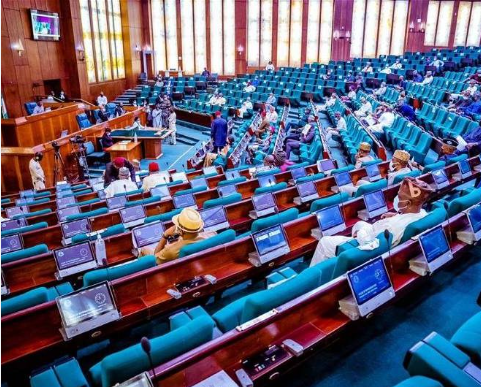Vote or face jail? That’s the new message echoing through Nigeria’s House of Representatives as a controversial bill to make voting compulsory clears its second reading.
The proposed amendment to the Electoral Act 2022 aims to boost voter turnout and strengthen democratic participation across the country. But not everyone agrees with the approach.
The bill, jointly sponsored by Speaker Tajudeen Abbas and Plateau lawmaker Daniel Asama, generated sharp division during Thursday’s plenary session. While some lawmakers praised it as a bold step toward civic responsibility, others questioned its practicality in a country still battling electoral irregularities and voter apathy.
If passed into law, the bill would require every Nigerian aged 18 and above to vote during general elections. Failure to do so without a valid reason could attract a fine of ₦100,000, a six-month jail sentence, or both. Valid exemptions include illness, religious objections, or residing outside the country.
Asama, while defending the bill, said voting should be seen as more than a right, it’s a duty.
“Democracy works best when people are actively involved. Voting should not be optional. It’s how we shape the future of this country,” he said.
He added that the bill is also a response to Nigeria’s consistently low voter turnout, noting that only 29% of registered voters participated in the 2023 general elections.
“This trend undermines the legitimacy of elected leaders and weakens our democracy. Compulsory voting can reverse that,” he said.
In other news, iNaijanow recently shared a post on Big Brother Naija Season 10 as auditions kick off nationwide.
The bill also seeks to empower the Independent National Electoral Commission (INEC) to track compliance and manage exemption requests, while promoting electoral education and public awareness. According to Asama, the goal is not just to punish non-voters but to deepen citizens’ understanding of their role in governance.
Citing countries like Australia, Belgium, and Brazil where compulsory voting is already in effect, the sponsors argued that the policy has helped increase political participation and reduce voter manipulation through inducement.
However, not everyone is sold on the idea. Lawmakers from the opposition Peoples Democratic Party (PDP) raised several red flags. Rep. Mark Esset (PDP, Akwa Ibom) called the bill a “band-aid solution” to a bigger problem.
“You can’t force people to vote in a system they no longer trust. Let’s fix the process first. Make votes count. That’s when Nigerians will show up willingly,” he said.
Rep. Awaji-Inombek Abiante (PDP, Rivers) also questioned the feasibility of enforcement, especially when Nigeria still struggles with outdated voter records.
“How can you talk about mandatory voting when names like ‘Mike Tyson’ still appear on our register? What about Nigerians in Ghana, the U.S., and elsewhere are we bringing them home to vote?” he asked.
Beyond voter turnout, the bill takes aim at INEC’s structural inefficiencies. Asama pointed out that the Commission’s dual role organizing elections while also regulating political parties, creates room for bias and overload. The bill proposes clearer boundaries for INEC’s duties to ensure neutrality.
Supporters of the bill, including Deputy Speaker Benjamin Kalu, Tijani Ghali (NNPP, Kano), and Amadi Akarachi (APC, Imo), said the move could usher in a new era of civic discipline. They argued that civic responsibility must be backed by law to create a more accountable electorate.
Meanwhile, the bill has stirred public reaction outside the chamber. When it was first introduced in April, the National Association of Nigerian Students (NANS) threatened mass protests, calling it “insensitive” and “unrealistic” without reforms to the voting system.
The House has now referred the bill to the Committee on Electoral Matters for more detailed scrutiny. As it moves through the legislative pipeline, Nigerians will be watching closely, many hoping that whatever reforms come next truly reflect the will of the people.
If you enjoyed this article, click here to read more informative posts, also check us out on Instagram for fun and engaging content.
Disclaimer: The opinions, views, and information expressed in this article are those of the author and do not necessarily reflect the official policy, position, or views of iNaijanow. The company assumes no liability for any errors, omissions, or damages arising from the use of this information.
















